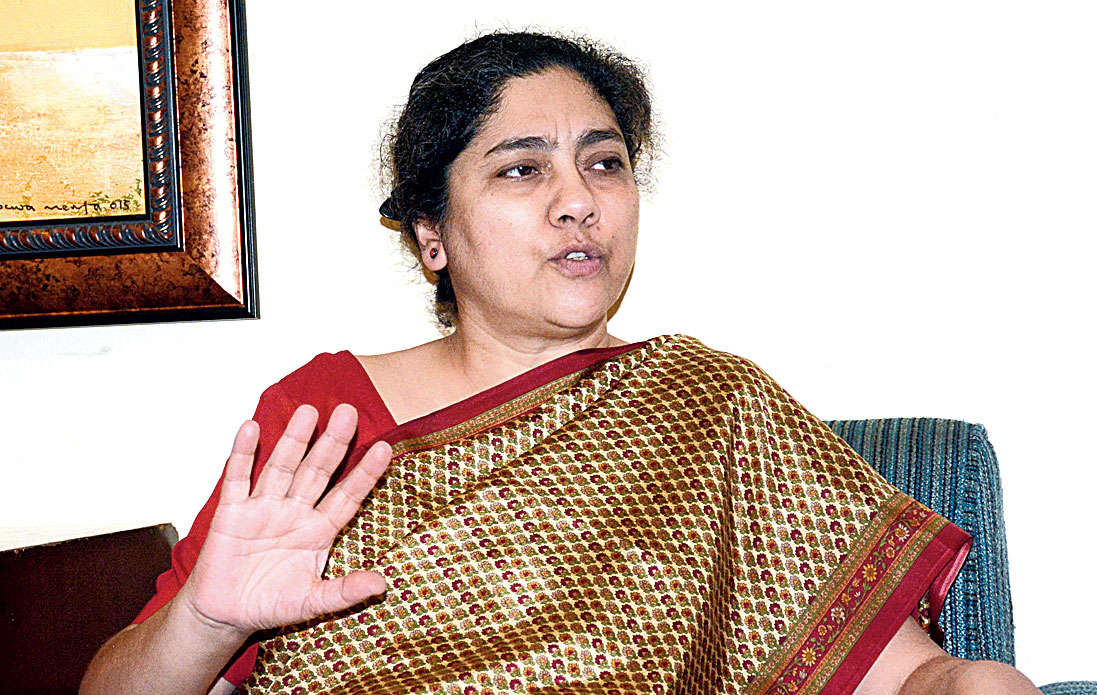Daman Singh has none of the airs one associates with a former Prime Minister’s daughter. The second of Dr Manmohan Singh’s three daughters was in Patna recently for a talk on her recent novel, Kitty’s War, which is set in the early 1940s. An alumna of St Stephen’s College, Delhi — where she studied mathematics — and the Institute of Rural Management in Anand, Gujarat, she worked in the field of rural development for 20 years. She has written both fiction and non-fiction. “In mathematics one plays with figures; in literature one does it with words. Besides I have read for 40 years before I wrote myself,” she quips in a conversation with The Telegraph in which she also talks about why she has avoided writing about her father’s tenure as Prime Minister. Excerpts:
TT: Your book Strictly Personal was a biography of your father Dr Manmohan Singh and mother
Gursharan Kaur. Yet you omitted the section in which your father was Prime Minister.
A: That was deliberate. My father’s tenure as PM is a separate subject. My book covered his life right from the 1930s to 2004. Adding his tenure as PM would have made it more complicated. So I left it to a person who is better placed to write about his tenure as PM.
In your book you have written that the first time your father met your mother he asked her which division she passed in and went on to crosscheck it?
(Laughs). Yes it was correct. My father is the only politician in the family. But it is the respect for learning which runs in the blood of the family.
Was being a PM’s daughter an advantage and disadvantage?
It was both. It had a huge disadvantage and it had also its advantage. I had a better understanding of national issues when he became the PM. But my career as a consultant for rural development came to an end. I could not pursue my career because when I went to rural areas I was garlanded and there was expectation from the people. I had become a VIP when I felt ordinary.
How was life when your father was PM?
Well, at home my father needed a space away from his profession and office. We kept out of his profession. All of us, his three daughters, tried to give him that space. Of course we did not live in 7 Race Course Road.
You worked 20 years in rural development. Does that help you choose subjects you write on?
Yes, my travelling in rural areas in 10 states does give ground and content. I used to travel a lot, even on bullock carts. It gave me an exposure to the people. Incidentally, I travelled in united Bihar — especially in the region which is now in Jharkhand. I have come to Patna for the first time, but that rural background one finds in Jharkhand can be identified in my books.
Your recent book, Kitty’s War, is set against the backdrop of the last days of the British raj. How did you pick that subject?
I heard from my father about World War II. I used to think that India was not connected with World War II, but after listening to my father I realised that India had an important role to play by sending soldiers and supplies to the war zones. So I researched the subject. That is how I picked the timeframe, including the last days of British raj.
Early on you wrote non-fiction. But lately you have been writing only fiction. Do you intend to intent to stick to fiction?
My next book is non-fiction. I will continue to shuffle between fiction and non-fiction.










